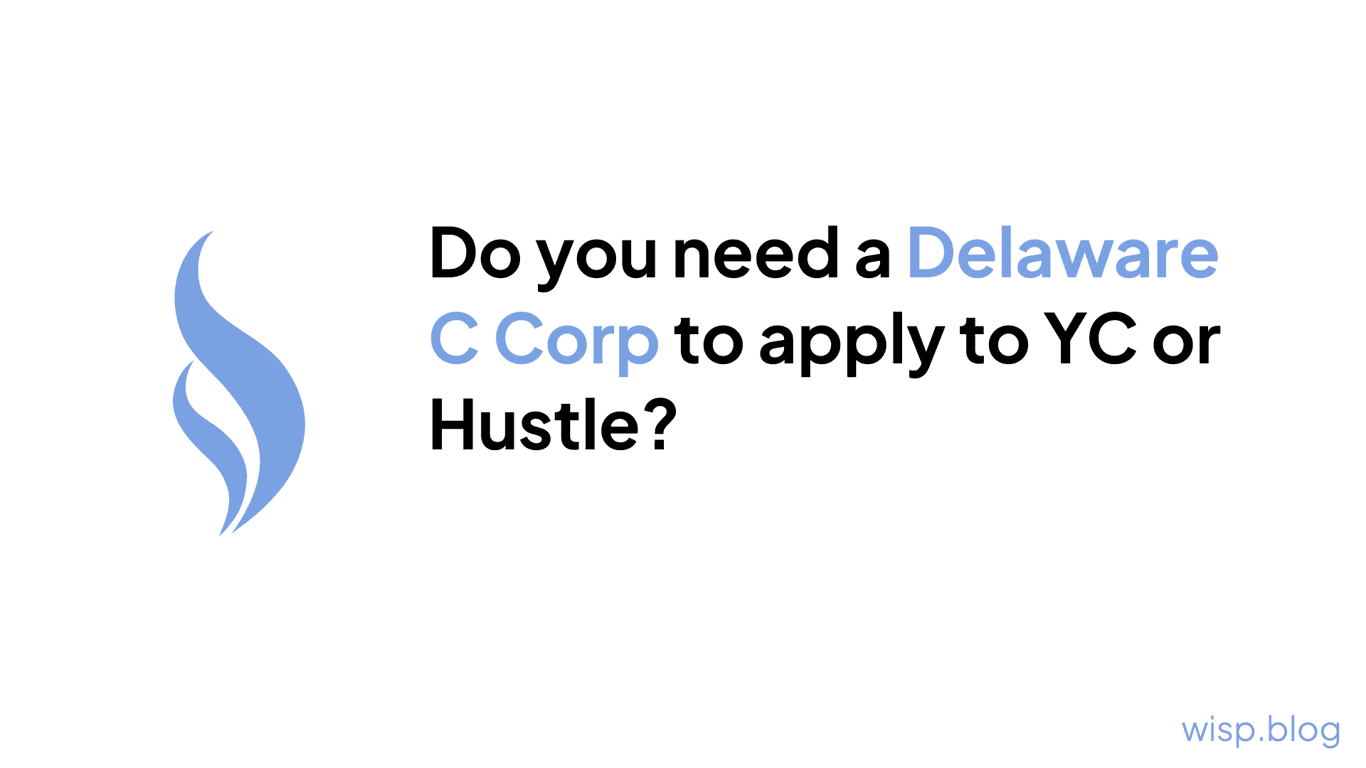
You're sitting there with a groundbreaking startup idea, the technical skills to build it, and the burning ambition to make it happen. But there's one thing you don't have: a co-founder. As you research Y Combinator (YC), one of the world's most prestigious startup accelerators, you keep running into the same nerve-wracking question: "Will they even consider a solo founder?"
The short answer? Yes, YC does accept solo founders. But there's much more to the story than that simple answer suggests.
The Solo Founder Dilemma
The anxiety around being a solo founder applying to YC is real. As one founder expressed on Reddit, "Has any YCombinator startup graduated with a solo founder?" This uncertainty plagues many aspiring entrepreneurs, especially when they encounter YC's well-known preference for founding teams.
The concern is understandable. After all, building a startup requires wearing multiple hats:
Product development and technical implementation
Sales and marketing
Business strategy and financial management
Operations and team building
Customer support and community management
As noted in startup discussions, "building a successful business requires a lot of skills and personality traits that are rarely ever found in a single person." This reality creates a natural bias toward founding teams who can divide and conquer these various responsibilities.
The Truth About YC's Stance
According to YC's official FAQ, while they do accept solo founders, they're generally more selective with them. This isn't because they're biased against solo founders per se, but because they've observed that having multiple founders often correlates with better startup outcomes.
However, this preference isn't set in stone. YC has funded numerous successful solo founders, particularly when they demonstrate:
Exceptional capability across multiple domains
Strong traction or market validation
Clear vision and execution ability
Understanding of their limitations and plans to address them
As one YC alum pointed out, "If you have sales and growth, no one really cares" about whether you're a solo founder or not. This insight reveals an important truth: traction and execution matter more than team composition.
The Solo Founder Advantage
While much attention is paid to the challenges of being a solo founder, there are actually several compelling advantages:
1. Faster Decision Making
As a solo founder, you can move quickly without the need for consensus or lengthy discussions. This agility can be particularly valuable in the early stages of a startup when pivots and rapid iterations are common.
2. Clear Vision and Direction
With no co-founder conflicts to navigate, solo founders can maintain a consistent vision and direction for their company. As one entrepreneur shared, "It's always better to add cofounder along the way than start with a potential problem."
3. Full Control and Ownership
Solo founders maintain complete control over their company's direction and equity structure. This can be particularly advantageous when making strategic decisions or negotiating with investors.
4. Surprising Success Rates
Contrary to popular belief, some data suggests that solo-founded companies can be highly successful. As noted in startup communities, "single founder startups do almost 180% better than double founder startups" in certain metrics.
What YC Really Looks For
When evaluating solo founders, YC focuses on several key factors:
1. Traction and Validation
Monthly recurring revenue (MRR) growth
User acquisition and engagement metrics
Market validation and customer feedback
Early adopter enthusiasm
2. Technical Capability
Ability to build and iterate on the product
Understanding of the technical landscape
Track record of shipping products
3. Business Acumen
Clear understanding of the market opportunity
Realistic growth and monetization strategies
Knowledge of key business metrics and KPIs
Strategies for Solo Founders Applying to YC
If you're planning to apply to YC as a solo founder, here are key strategies to strengthen your application:
1. Show Significant Traction
The best way to overcome the solo founder "disadvantage" is to demonstrate impressive traction. As highlighted in founder discussions, "If you have sales and growth, no one really cares" about your solo status. Focus on:
Growing your user base consistently
Generating meaningful revenue
Showing strong customer engagement
Demonstrating market demand
2. Address the Skills Gap
Acknowledge the challenges of being a solo founder and show how you plan to address them:
Identify your core strengths and weaknesses
Have a clear plan for hiring key roles
Show existing relationships with advisors or mentors
Demonstrate your ability to learn and adapt quickly
3. Build a Strong Support Network
While you might be solo, you don't have to be alone:
Cultivate relationships with industry mentors
Join startup communities and networks
Engage with potential advisors
Build relationships with early employees
4. Have a Clear Co-Founder Strategy
Even if you're applying solo, have a thoughtful approach to potentially adding co-founders:
Be open to bringing on the right co-founder if found
Have clear criteria for potential co-founders
Show understanding of what complementary skills you need
Demonstrate you're not solo due to inability to work with others
Making the Final Decision
The decision to apply to YC as a solo founder shouldn't be based solely on acceptance odds. Consider these factors:
1. Your Personal Situation
As one founder candidly shared, "I don't have anyone I'd love to share my shares and can't see anyone from my friends circle dedicated and skilled enough to go with me this longterm way of everyday bleeding." If this resonates with you, forcing a co-founder relationship could be worse than going solo.
2. Your Business Model
Some business models are more suitable for solo founders than others. Consider:
The complexity of your product
The sales cycle and customer acquisition process
The operational requirements
The capital intensity of your business
3. Your Growth Timeline
Being a solo founder might affect your growth speed, but that's not always negative. Consider whether slower, more controlled growth might actually benefit your specific business model.
The Bottom Line
Yes, Y Combinator does accept solo founders, and many have gone on to build successful companies. While having a co-founder might make the journey easier in some ways, it's not a prerequisite for success or YC acceptance.
Remember what one successful entrepreneur noted: "Don't get discouraged. Solo founders are much more common than people think, and in fact solo founded businesses are much more likely to be successful than co-founded ones."
The key is to focus on building something valuable, showing traction, and demonstrating your capability to execute. If you can do that, your solo founder status won't be the deciding factor in your success or failure.
Whether you decide to apply to YC as a solo founder or not, remember that many successful companies started with just one founder. The most important thing is to start building and let your results speak for themselves.
Ready to take the next step? Check out YC's Startup Library for more detailed guidance on applying as a solo founder.


